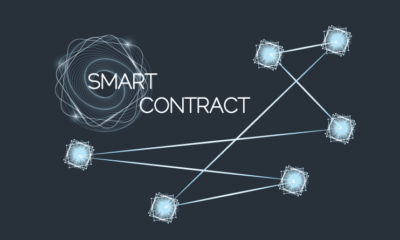
Blockchain has been an industry-changing technology that has changed many parts of the financial services sector, with the possibility of helpful applications in other industries as well. One of the areas that could potentially benefit from the application of blockchain technologies is the healthcare industry, with specific benefit to medical offices, hospitals, and pharmaceutical companies.
Blockchain, as a digital, decentralized ledger, that allows for chronological and public entries is a safe, flexible way of tracking, gathering, and distribution of information. As a technology, it creates greater accountability and efficiency in many ways, and as such, it’s not hard to imagine several immediate blockchain use cases in pharma. It’s a tool that lends itself well to collaboration, transparency, and efficiency – all very important and highly valued in the pharma and healthcare industries. Here are four ways that blockchain may be able to help doctors, patients, businesses, and more.
Medicine Supply Chain Management:
Blockchain has proven itself a smart solution to tracking products from different organizations. This supply chain benefit can help the pharmaceutical and drug industry. By being able to track the transportation and distribution of drugs from the pharmaceutical manufacturer to distributors to pharmacies, both patients and doctors can be more confident about the integrity of the medicines that are being prescribed. A decentralized tracking system like the one that blockchain provides could go a long way towards preventing counterfeit drugs from entering the market. It can also be useful in ensuring compliance during manufacturing and transport. This might be one of the most important ways that blockchain can make an immediate impact in the medical and pharmaceutical companies. As of 2018, many pharma groups have already experimented.
Medical Device Tracking:
Another supply chain issue is related to medical devices. From X-ray and MRI machines to pacemakers and other implantable devices, having a blockchain technology tracking and tracing system in place can help ensure quality and safety across the board. It can also help provide a more efficient way of being able to recall products in the event of a malfunction or defect.
Healthcare Information Access:
Blockchain technology could also prove valuable when it comes to accessing patient information. Right now, the healthcare industry has an information access problem. Because of the need for security and privacy, there are a lot of patient records that doctors don’t have necessary access to. The encrypted nature of blockchain technology could be useful in helping to solve this issue, providing physicians access and patient’s the privacy they need.
Clinical Trials:
Clinical trials are necessary for pharmaceutical companies to test new drugs and evaluate their effectiveness and potential side effects before being able to present the drug to a general market. This presents challenges in privacy and information gathering, as participants have to provide health information and consent to be chosen for a trial, and various doctors need to be able to both access this information and update it regularly with trial information. Blockchain provides a potential solution to needing a safe way to collect and access medical information for the purpose of beginning and running clinical trials.
These are just some of the possibilities – blockchain uses in pharma may prove to be more widespread. While blockchain may not be an instant solution to better credentialing, safer patient data, faster answers, and easier registrations, it does have the potential to grow into a tool that can help to revolutionize parts of the healthcare and provide a practical solution to many challenges. From privacy concerns to more transparency in medical developments, blockchain is posed to enhance pharma and medical work everywhere.








